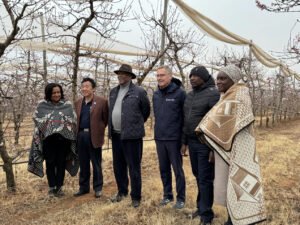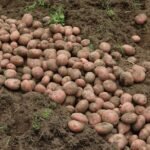By Zablon Oyugi, August 9, 2024, The Ethiopian Bio and Emerging Technology Institute (BETin) in collaboration with the Ministry of Innovation and Technology and Oromia Agricultural Research Institute has launched the nation’s first-ever spirulina research and production center with an aim to reduce importation of the nutrient-rich microalgae.
Ethiopia has been importing spirulina from countries such as Europe, China and India at as high as USD1,092.50 (63,000 birr) per kilo. However, the new initiative will see the country break from the dependence on export and potentially become a future exporter.
Speaking to local media during the launch late last month, Professor Kassahun Tesfye, the Director General at BETin said that the centre is actually a materialisation of a long-waited ambition to bring only academic microalgae researches in the universities to real industrial production setting.
“This is a practical demonstration that spirulina can be an industrial product in our country. We now need to expand the research and production of the product with a wider engagement of the public, private and local community stakeholder,” said Prof. Tesfye.
He also added that it has been a long journey dating four years back to realised the dream indicating that the institute has had to start by building a small microalgae research lab in Addis Ababa to produce pure spirulina seeds with an outlay of eight million birr. This was to help in multiplication of the seeds and expand production to several sites in the country.
USD142,198.66 investment project
Built at the Adami Tulu Agriculture Center spanning 1,200 square meters, the Ethiopia’s new spirulina research and production facility has been built with an investment of USD142,198.66 (8.2 million birr) and has already produced first batch of spirulina more than 30 kg per month.
According to Dr. Firew Tafesse, a senior researcher at the institute, this initial success establishes a solid foundation for scaling up production in the future.
The center, officially opened on June 20, 2024, allows Ethiopia to produce spirulina at a large scale.
Spirulina, a highly nutritious product, is sold at premium prices, reaching USD346.83 (20,000 birr) per kilogram and up to USD34,682.60 (2 million birr) per quintal.
“We’ve successfully completed the first pilot batch of spirulina. This achievement will lessen our dependence on imported spirulina, which holds substantial market value,” said Tafesse to Shega, one of the popular media platform in the country.
Addressing malnutrition among children
Other than earning Ethiopia foreign currency through potentially export arrangement, the production of the microalgae is also poised to address malnutrition among children.
Spirulina, a type of blue-green algae, is renowned for its nutrient density, containing over 90 per cent of the essential nutrients required by humans. It is the only microalgae globally that offers all five key nutrients in a single cell.
In fact, the microalgae boasts more than 60 per cent protein, along with a rich supply of vitamins, fats, minerals, and carbohydrates.
Bayissa Bedada, the State Minister in the Ministry of Innovation and Technology (MinT) said that 35 per cent of the children under five years old in Ethiopia suffer from malnutrition affecting their growth thuis the launching of the facility will help address the menace.







